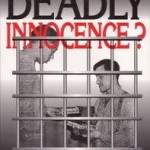by Mary E. Ulrich | Feb 14, 2017
Love–NOT Labels
With families, “Love” is all that matters–no matter what, unconditionally.
The love we feel for our child, our baby, our sister, brother, son, daughter can never be replaced by a medical or psychological term some professional puts on a chart. So in isolation, it shouldn’t matter if the diagnostic label is “retarded” or “intellectual disability.”
As we spoke about in the post Circle of Life (click here) each person and family is part of a much larger system and what affects one part of the system affects all the parts of the system.
And that is where the chosen word and label does matter–big time.
Yesterday in the related post, “Retarded”–no more (click here) I briefly wrote about Rosa’s Law and showed one of the press releases/alerts sent by parents and advocacy groups to change the words, “retarded” to “intellectual disability.” Some of these advocates are professionals who make their living working with people with disabilities. But like most of the legislation of the last 60 years, Rosa’s Law came about through the vision and hard work of families.
If you want more information on what parents have accomplished visit Parallels in Time I (click here) and II (click here)
I was going to summarize Senator Mikulski’s Statement on the Introduction of Rosa’s Law (below) but since her words still make me cry, I figured you’d want to see the “primary research document”. Especially check out Nick Marcellino’s comments. And get the Kleenex handy.
This is just one family who went to one more meeting, talked with one more politician–but this time, with a lot of hard work and uniting allies, they changed the system. Maybe it is just a small step in the scheme of things. There are still thousands of people with intellectual disabilities and their families who do not have the services they need. But, this small step gives us all hope that our democratic system works. An individual can make a difference.
It amazes me that in an election year when politicians can’t agree on anything, they unanimously voted for this law. That alone makes it memorable.
Comments Please:
What do you think about Rosa and her family? Have you ever been an advocate for change? How, When, Why? How did it feel?
How is this press release different than the one in Retarded–no more?
Keep Climbing: Onward and Upward
All the best,
Mary
Rosa Marcellino and her family

FOR IMMEDIATE RELEASE:
17-Nov-2009 CONTACT: Press Office
202-228-1122
Senator Mikulski’s Statement on Introduction of Rosa’s Law
WASHINGTON, D.C. – U.S. Senator Barbara A. Mikulski today introduced Rosa’s Law, a bill that will eliminate the terms “mental retardation” and “mentally retarded” from the federal law books. U.S. Senator Michael B. Enzi (R-Wyo.), Ranking Member of the Health, Education, Labor and Pensions Committee, is the Republican sponsor of the bill.
Senator Mikulski’s statement as delivered on the Senate floor follows:
“Today I rise to introduce legislation that I’m calling Rosa’s Law. This bill began by listening to the people in my own state. It began when a mother told me a compelling story about her own daughter, her family’s efforts to give her daughter an opportunity for an education and to be treated with respect and with dignity. And at the same time, it began with the advocacy of not only she and her husband, but of her entire family, including her 14 year old son Nick who testified at the Maryland General Assembly.
“As a result of their effort, I’m introducing Rosa’s Law. Before I say more about the bill, I want to tell you about the family. I want to tell you about the Marcellinos, Joseph and Nina who are parents to four children – Nick, Madeleine, Gigi and Rosa. They’re in the gallery now watching this and I wish you could have been with me in my office as I met with the parents and talked with the family.
“Last year, at a roundtable on special education, I met Nina Marcellino for the first time. She told me about her daughter Rosa who was labeled at her school some years ago as mentally retarded. She told me about the stigma, the pain, and the anguish it caused both Nina and her husband, Rosa’s brother and sisters as well as the Rosa herself.
Nina and Joseph reached out to their local disability advocacy organization, The Arc, to see what could be done to change the law. They then reached out to a member of the Maryland General Assembly, a wonderful Representative named Ted Sophocleus. He introduced legislation in the General Assembly that would change the word ‘mentally retarded’ and substitute it with the phrase ‘an individual with an intellectual disability.’
“That’s why I stand on the Senate floor today to introduce, at the request of the family, a law on behalf of this little girl and on behalf of all of the children of the United States of America who are labeled, stigmatized and bear a burden the rest of their lives because of the language we use in the law books.
“My law changes the phrase ‘mentally retarded’ to ‘an individual with an intellectual disability’ We did this in health, education and labor policy without in any way negatively impinging upon either the educational or other benefits that these children are entitled to.
“When it came time to bring the bill before the General Assembly, the family was there. And who spoke up for Rosa? Well, her mom and dad had been speaking up for her. Her brother Nick and sisters Madeline and Gigi had been speaking up for her. This wonderful young boy, Nick, at the time 13, this is what he said to the Maryland General Assembly,
‘What you call people is how you treat them. What you call my sister is how you will treat her. If you believe she’s ‘retarded’ it invites taunting, stigma. It invites bullying and it also invites the slammed doors of being treated with respect and dignity.’
“Nick’s words were far more eloquent that day than mine are today. I want to salute Nick for standing up for his sister, but I think we need to stand up for all because in changing the language, we believe that it will be start of new attitudes towards people with intellectual disabilities. Hopefully, people will associate new words with the very able and valuable people that go to school, work, play soccer or live next door.
“Eunice Shriver believed in this when she created the Special Olympics. She knew that special needs children need special attention but they can do very special things, and look what she started. I had the opportunity to talk to Rosa’s mom Nina while this bill was under consideration by the Maryland General Assembly. I promised her then that if that bill passed the Maryland legislature, I would bring it to the floor of the United States Senate.
“Well, it passed unanimously. Governor O’Malley has signed it and today I stand before you introducing the legislation. It makes nominal changes to policy in federal education, health and labor law. It simply substitutes ‘intellectual disability’ for ‘mental retardation.’ This bill will neither expand nor diminish services, rights or educational opportunities. We vetted it with legal counsel. We reached out to the very wonderful advocacy groups in this field and they concur that this legislation would be acceptable.
“This is not the first time we’ve updated this terminology. Our laws once referred to boys and girls as ‘feeble minded.’ We thought we were being advanced when we changed it to ‘mentally retarded’ in the 1960s. Now, 40 years later, let’s take another big step and change it to ‘intellectual disability.’
“This bill makes language used in the federal government consistent. The President’s Committee on Mental Retardation was changed by executive order so it is now the Committee on Individuals with Intellectual Disabilities. The CDC uses ‘intellectual disability,’ the World Health Organization uses ‘intellectual disability,’ so my law makes the language consistent within the federal government.
“I’ve always said that the best ideas come from the people. Rosa’s Law is the perfect example of effective citizen advocacy. A family that pulled together for their own and in pulling together they’re pulling us all along to a new way of thinking. I want to recognize the Marcellino family who is with me in the gallery and the namesake of the law Rosa’s Law pictured behind me. She is also up there today.
“I also want to take the opportunity to thank my colleagues. It was indeed an honor to represent this family. I believe that in our country people have the right to be heard and that we should listen. They have a right to be represented, which I’ve tried to do. And now, let’s try to change the law.
“It was a pleasure to work with Senators Harkin and Enzi, the Chair and Ranking Member of the HELP Committee. I have their wholehearted support. This is going to be a nonpartisan bill. We’re going to check our party hats at the door and move ahead and tip our hat to these boys and girls.
“This bill is driven by a passion for social justice and a compassion for the human condition. We’ve done a lot to come out of the dark ages of institutionalization and exclusion when it comes to people with intellectual disabilities. I urge my colleagues to join me in a step further. Help sponsor the legislation that I offer on a bipartisan basis. Help me pass the law and know that each and every one of us makes a difference. When we work together, we can make change.”
by Mary E. Ulrich | Jan 1, 2017

 photo credit: horizontal.integration
photo credit: horizontal.integration
Today is Jan. 1
Could this be the year of the Power of One?
We can celebrate with fireworks, silly hats, black-eyed peas and sauerkraut. We can dress in yellow (for prosperity) or white (for peace) while throwing pomegranate seeds on the roof and making wishes. But, this new year will race forward–with or without us. In 365 days, it will become the next year, and then the next …. The cosmic universe doesn’t care about individual civilizations who make their own calendars. It doesn’t care about individual people.
Actually, that is a comfort. I don’t want to be Atlas holding the world on my shoulders. I don’t want the responsibility of saving the world, that’s too much.
Systems Theory–Circles of Life
Bronfenbrenner’s systems theory states that what affects one part of the system affects all the parts of the systems. In previous posts on the circle of life and family reunions I’ve talked about his embedded systems (like Russian Dolls). The individual is in the center circle, surrounded by the family, surrounded by the community and “systems.”
Inner Circle: Aaron
When Aaron, my son with the labels of autism and developmental disabilities was growing up, I made specific dream plans and goals to include him in an inclusive community.
They were audacious plans. But we had IDEA and ADA and hope. And Aaron was young and had lots of years ahead of him. I thought the values of ALL people living and working in an inclusive community would keep evolving into a more accepting world. I thought I could count on the professionals, the local, state, national agencies and organizations to help.
But those systems don’t exist for adults with disabilities and/or their families.
Aaron is 42 years old. For adults there is no mandate or law saying he can get services. So we have watched as his behavior and communication have deteriorated. And, frankly, I have even had trouble envisioning a new dream plan.
This past year has been a painful experience watching the residential and vocational companies NOT want Aaron–but want his Medicaid Waiver funds.
The opportunity of a new year is to dream again. It’s time to use the Power of One.
The Power of One: For Aaron
Aaron recently started a day program with Goodwill/Easter Seals five days a week and they are providing him with a one-on-one staff person three days a week. That is the brightest hope we have had for years. So YEA!
Aaron still has a great roommate and one loving caregiver who has been with them for over 7 years. YEA YEA!
And Tommy (Aaron’s brother) and his family are now living near us, so our family can get together more often. YEA YEA YEA!
That is three wins. As this year ends, those are the blessings I see and celebrate.
Dream plan for Aaron:
Aaron will be happy. He will have people around him who love him. He will have choices and do interesting things. Have friends. He will be able to communicate when he wants/doesn’t want something. He will be safe.
Pretty basic. Nothing specific. But again, these are audacious goals.
So, maybe everything you and I do this year will not make much of a difference in the cosmic scheme of things. But using the Power of One, I can do something to make a difference in my son’s life.
In the example of Goodwill/ES, it was the Power of One times 4. Aaron’s Dad, me, our Support Coordinator, and the leadership of Goodwill/ES. We kept at it, and it happened.
The Power of One: For Community
Using the Power of One, I will continue my blog,ClimbingEveryMountain.com.
I will try to entertain, encourage and give information to grow a community that cares about adults with disabilities.
Thank you for being with me on this journey. It has been an amazing first six months for Climbing Every Mountain. Together we can build a better world and community–one person at a time.
Virtual Circles
Old Bronfenbrenner wouldn’t recognize his embedded systems, but today we are using the social media tools (blog, Twitter, Facebook) and reinventing his circles of love and support that will ripple out to touch the future. The people in the circles are not our next door neighbors, they might live on the other side of the world.
Is social media and technology the solution?
Chris Brogan (ChrisBrogan.com) is a social media guru who suggests the future is going to include websites, blogs, forums, videos and online communities which help us connect with like-minded folks to get the information and emotional support we need.
His new company, 501 Mission Place, is helping non-profits use social media and become more effective. Perhaps you know of a non-profit that could use some social media help.
But I wonder if it is too late for many traditional organizations.
Virtual communities are already replacing many of the antiquated national organizations which have huge overhead and an inability to help individuals.
Virtual training is replacing the large conferences, meetings and university classes. Webinars and online courses like Partners in Policymaking are the new “best practice.”
Do you use the traditional phone and agencies in your community, or do you search for people and information in the virtual world of Cable TV, iPods, www, Twitter, Facebook, YouTube and …?
Summary: In this new year, we can use our individual power, the Power of One, to make a difference for our children with disabilities. We can do it by advocating directly for the people we love, and we can do it by becoming part of a virtual community like Climbing Every Mountain or other online communities.
In 2017–We’re Number One!
I hope you will sign up (top left) to get notices of new posts. I hope you will add your voice and stories to the comments. I hope you will use the social media of Twitter and Facebook to invite others to join us. The way we are going to build a better world for vulnerable people is to join together. And I hope you have an amazing 2017.
Keep Climbing: Onward and Upward
All my best for a fantastic year of ones,
Mary
Use Your Power: Comments Please
How can you use the Power of One? Do you think social media can help? Do you recommend other blogs and/or virtual communities?
I’d love to read your comments and know what you are planning this year.
by Mary E. Ulrich | Sep 8, 2016

 photo credit: Sister72
photo credit: Sister72
The Race Toward Inclusion| Do you see it?
I love this picture. It reminds me of many of my favorite quotes:
“The real voyage of discovery is not in seeking new lands, but in seeing with new eyes.” Proust
“No one’s blinder, than s/he who will not see.” Kenny Rodgers’ song
“The race is not only to the swift, but to s/he who keeps on running.” (unknown)
“It is only with the heart that one can see rightly; what is essential is invisible to the eye.” Antoine de Saint-Exupéry
Eyeballs Running Everywhere
The racing eyeballs also remind me of late at night, lying in bed when my thoughts just keep galloping around in my head.
Our world is filled with a myriad of choices, distractions, good and bad news–all begging for our eyeballs and attention.
Parents of typical kids have trouble sorting out their priorities, and much of their intense parenting ends when their kids are 21. For parents of kids with disabilities, our hardest years are after graduation.
We are supposed to be experts on everything, autism, intellectual disabilities, developmental disabilities, govenment laws and departments on local, state and federal levels, advocacy organizations….
We are supposed to visualize our future, our children’s future.
We are supposed to foresee what will happen, so we can be prepared to protect our vulnerable children.
It makes me dizzy.
I want my bloodshot eyeballs to stop racing around trying to keep up. I want to be able to look forward to a future where my son will be okay. I want to be able to trust the professionals to do their jobs…I want to sleep in peace–(well, not the eternal kind of peace, just restful, you know sleeping through one or two nights 🙂
What about you?
Can you see the good–and ignore the distractions of failed levies, government cutbacks, negative news?
Can you watch the media focus on new segregated programs and ignore inclusive programs?
Can you envision new inclusive services in the community?
Can you discover hopeful ideas and events?
Can you anticipate next week being better? Next month? Next year? 10 years from now?
Can you believe you will have the people and resources you need?
Do you also feel dizzy?
We need to narrow our focus and concentrate on “the essential”: What can we do today to move toward the inclusion of our children in society?
We can’t solve all the issues of the world. But we can exercise the Power of One and do one thing today to make a more inclusive world for the person we care about. One thing. Today.
But how do we decide on that one thing? How do we filter out all the choices?
Pruning
Just like a gardener or farmer prunes the dead wood from a rose bush or apple tree, we need to teach ourselves to prune the information that bombards us everyday. We can make the choice to throw out some information, ignoring potential goldmines. If it is really a goldmine–it will still be there tomorrow. I do this by limiting the time I spend watching TV, the news, using social media like Twitter and Facebook. I don’t care what Brad Pitt is doing, I don’t want to hear about recent car wrecks, abused children, or floods in Asia. I can’t do anything about it. If it is bad, scary, if it is going to keep my eyeballs busy while I am trying to sleep–I prune it out. The world can move on without me.
Planned Ignoring
Planned ignoring is consciously making a decision to ignore certain things. Planned Ignoring gives me time to digest and analyze the information I already know. We need to allow ourselves to “see” and “not see” as we make our priorities. This will help us reduce the overwhelm. We can stop the racing eyeballs in our minds. We can allow ourselves the luxury of closing our eyes for a moment, and find our FOCUS.
Seeing with New Eyes of Inclusion
Long ago, I decided my “voyage of discovery” was to the land of inclusion. It meant learning new ideas, shifting my paradigm, and it is based on the principle of normalization, I want my son Aaron to have as normal a life as possible (period). I can make a difference for him by seeing with my new eyes of inclusion.
What do I see? What does my loved one see?
Is this moving toward inclusion?
I have to live in the real world, so I compromise a lot. But I try to keep my vision focused on the goal: Inclusion for Aaron and others. For instance, yesterday I again had a discussion about filling out a form when we picked Aaron up at his house. Because of the principles of inclusion and normalization, I will still make up my own form, rather than use the medical model form from the agency. Six month ago I was promised this would be changed, but Herbie still lives. Herbie bits the dust“>Click here.
When I first confronted the agency six months ago, I was using “pruning.” I would chop out the old policy. I made phone calls, was given assurances that it would be changed.
For the last five months, I’ve used “planned ignoring”. I kept hoping they would keep their promise to change the form. I kept signing the form I made myself. (The house staff was also using planned ignoring–and just let me do my thing.)
But now, it’s time to use my “new eyes” and make one change as we journey into our annual ISP (Individualized Service Plan–the adult service version of the IEP only without the due process).
I’m predicting: The EYES will have it!
Sweet Dreams Everyone.
Keep Climbing: Onward and Upward
All my best
Mary
COMMENTS:
What do your eyeballs see? What is your vision for the future? Do you think the concepts of “pruning,” “planned ignoring” and “seeing with new eyes” are useful strategies? Are some people incapable of “seeing”?
by Mary E. Ulrich | Aug 18, 2016
In Bob Perske’s memory, I’m posting some of my favorite posts about him.

Bob Perske by Joe Arridy's Grave
On January 7, 2011, Colorado Governor Bill Ritter, Jr. issued a “posthumous pardon” to Arridy, one of the five wrongly executed people with intellectual disabilities.
BOB PERSKE:
Pastor to People with Disabilities and their Families
Bob Perske is one of the most gentle and positive people I know. He lives God’s message to care for the “least of my brethern.”
It might surprise people to know Bob hangs out with criminals on death row.
In a previous post I shared his “history of people with disabilities and hope for families.”
Because Bob understands the history of people with disabilties, he knows FEAR was one of the main reasons for removing people from their families and locking them up in institutions, away from society. Fear is still one of the main reason people are excluded from quality lives in the community.
The world in which we live is not always safe, secure, and predictable. It does not always say “please” or “excuse me.” Everyday there is a possibility of being thrown up against a situation where we may have to risk everything, even our lives. This is the real world. We must work to develop every human resource within us in order to prepare for these days (Robert Perske: “The Dignity of Risk.” 1972).
Bob is still hopeful for families, but he wanted to share his recent testimony about people with intellectual disabilities who have been convicted of serious crimes they didn’t commit. Crimes they confessed to because they wanted to make the police officers happy or get them to stop the interrogations. Crimes they didn’t even understand.
Everyone wants people who kill, steal and rape people behind bars. Everyone wants dangerous people off the streets. Everyone wants JUSTICE for the victims. And, Everyone wants the right person convicted.
But Bob Perske and others ask:
“What if the person who confesses to the crime is a person with an intellectual disability?”
Certainly, just because a person has the label of intellectual disability doesn’t make them innocent–but it also shouldn’t make them vulnerable to giving false testimony in our criminal justice system.
Bob writes:
Although I did a lot of writing about kids and families earlier, deep in my heart I think they also need to be aware of futures where they can be misunderstood by interrogators and they need to be alert and ready for these grim possibilities.


What can we do?
ELECTRONIC RECORDING OF CUSTODIAL INTERROGATIONS
Robert Perske, Citizen Advocate
Persons With Intellectual Disabilities
[email protected]; www.robertperske.com
www.friendsofrichardlapointe.com
www.friendsofjoearridy.com
CT: REGARDING SB NO. 954 AN ACT CONCERNING THE ELECTRONIC RECORDING OF CUSTODIAL INTERROGATIONS (March 9, 2011)
Dear Committee Members:
For the past 34 years, I have served as a worker and author on cases involving persons with intellectual disabilities who were coerced into confessing to major felonies they did not commit.
I am a member of The ARC of Connecticut and The ARC of the United States.
I am the author of “Perske’s List: False Confessions from 75 Persons with Intellectual Disabilities.”
It will be published in September’s Intellectual and Developmental Disabilities, a journal of the American Association on Intellectual Disabilities. (AIIDD).
The article is 24 pages long. It shows that:
• 65 have been legally exonerated.
• 29 have been exonerated by DNA tests.
• 5 are now headed for court hearings thanks to “Innocent Project” groups.
• 5 have been so wrongly executed they will always be painful to justice-loving lawyers when they think about them.
• 1 of the five wrongly executed was Joe Arridy. On January 7, 2011, Colorado Governor Bill Ritter, Jr. issued a “posthumous pardon” to Arridy.
• I predict that Richard Lapointe of Connecticut will someday be added to this list.
The time has come when judges and juries should be helped by advanced video technology to see everything that went on in an interrogation room. Until they can do that, our justice system will be tainted.
Respectfully Submitted
Robert Perske
RESOURCES:
Check out Bob’s articles, books, websites or give him a call.
Closing Thoughts:
As parents we worry about our children being victims. Few of us imagine our children as the aggressor.
What can be done to give them better protection, a more fair and equal justice? Because sometimes even the people who have confessed to being the aggressors–are Victims.
Electronic equipment seems like an easy answer to me. I would think it would help protect the rights of everyone, including the police officers.
Keep Climbing: Onward and Upward
All my best,
Mary
Discussion: These are life and death issues. Would video technology and electronic recordings of custodial hearings bring better justice to everyone? Is this worth the cost? What do you think of Bob’s role as a pastor and “citizen advocate”? How can we make our children less vulnerable?






